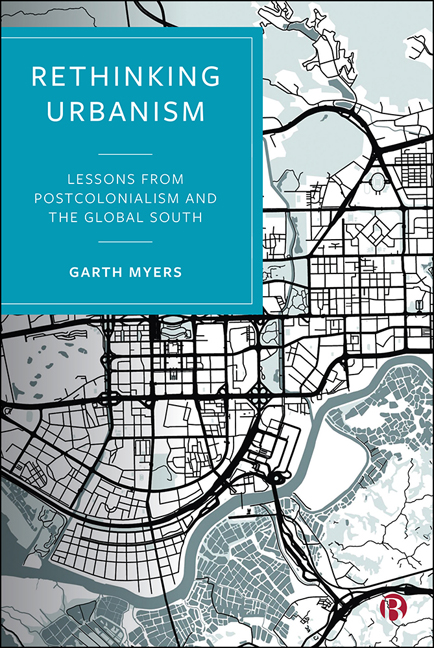Book contents
- Frontmatter
- Dedication
- Contents
- List of Figures
- List of Acronyms
- Glossary of Foreign Terms
- Acknowledgments
- Preface
- Introduction: Rethinking Urbanism from the South
- 1 Southern Processes of Planetary Urbanization in Hartford
- 2 Villages in the City: Patterns of Urbanization in the Pearl River Delta, Dakar, and Zanzibar
- 3 The Useful and Ornamental Landscapes of British (Post)colonialism
- 4 Submarine Urbanism: Cities People Make in ‘the Here and the Elsewhere’
- 5 ‘The Whole World Is Made in China’: Products and Infrastructures of Dis/connection
- 6 Urban Politics and Policy in a Southern Urban Planet
- Epilogue
- References
- Index
Introduction: Rethinking Urbanism from the South
Published online by Cambridge University Press: 03 March 2021
- Frontmatter
- Dedication
- Contents
- List of Figures
- List of Acronyms
- Glossary of Foreign Terms
- Acknowledgments
- Preface
- Introduction: Rethinking Urbanism from the South
- 1 Southern Processes of Planetary Urbanization in Hartford
- 2 Villages in the City: Patterns of Urbanization in the Pearl River Delta, Dakar, and Zanzibar
- 3 The Useful and Ornamental Landscapes of British (Post)colonialism
- 4 Submarine Urbanism: Cities People Make in ‘the Here and the Elsewhere’
- 5 ‘The Whole World Is Made in China’: Products and Infrastructures of Dis/connection
- 6 Urban Politics and Policy in a Southern Urban Planet
- Epilogue
- References
- Index
Summary
Introduction
Over the last few decades in urban studies, a considerable critique and a vast opening of comparative urbanism arose out of postcolonial studies and Southern theory, challenging universal understandings emanating from European and North American cities. This critique energized a reconsideration of the need to construct global hierarchies of cities, the criteria for positioning on such hierarchies, and the desirability of policy making aimed to boost a city's rankings on them. This literature called into question the meaning of urbanism and the roles, functions, and shapes of urban areas, when accepted understandings for these derive from Euro-American contexts and all other cities are measured against them. This has led to an ongoing rethinking of how to do global urban studies. This is an exciting time for urban studies, but an unsettling time. Part of the excitement and unease rests with this rethinking going on around the field, but another part involves what is going on, on the ground, for urban areas. These two parts are inseparable: scholars are rethinking urbanism because urbanism itself is changing so quickly.
This book builds on the opening toward recentering global urban studies, through engagement with postcolonialism and global South thinking. I work toward empirical illustrations of how lesser-studied urbanisms in the global South relate to one another. The argument builds from postcolonial studies and Southern theory. The aim is an analysis of select urban regions that have mostly remained off the map of urban studies and perceived as disconnected from one another. I use the case study urban areas, and themes which link them, to engage debates in global urban studies about urbanism and urbanization – debates that have still largely been shaped by theories from the global North, even when empirical analysis extends to the global South.
My title is Rethinking urbanism, and my main interest lies with both meanings attached to the word urbanism: the more common understanding of it as a way of life, and the architecture and planning deployment of it as a spatial pattern or urban design. Urbanization is the multifaceted process creating urbanism – both cities and metropolitan regions. The study of urbanism and urbanization is staggering in breadth and complexity.
- Type
- Chapter
- Information
- Rethinking UrbanismLessons from Postcolonialism and the Global South, pp. 1 - 22Publisher: Bristol University PressPrint publication year: 2020

